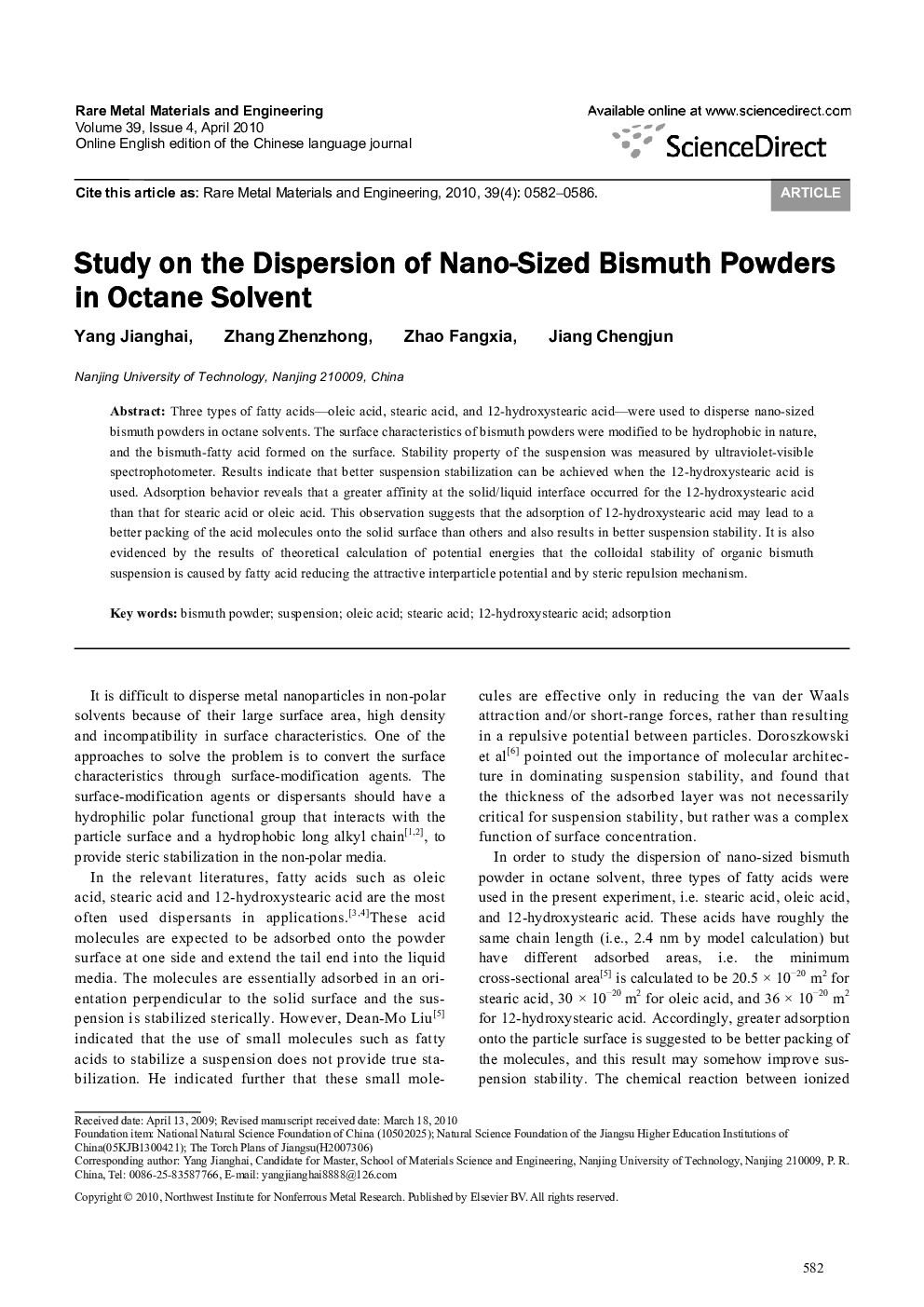| Article ID | Journal | Published Year | Pages | File Type |
|---|---|---|---|---|
| 815406 | Rare Metal Materials and Engineering | 2010 | 5 Pages |
Three types of fatty acids—oleic acid, stearic acid, and 12-hydroxystearic acid—were used to disperse nano-sized bismuth powders in octane solvents. The surface characteristics of bismuth powders were modified to be hydrophobic in nature, and the bismuth-fatty acid formed on the surface. Stability property of the suspension was measured by ultraviolet-visible spectrophotometer. Results indicate that better suspension stabilization can be achieved when the 12-hydroxystearic acid is used. Adsorption behavior reveals that a greater affinity at the solid/liquid interface occurred for the 12-hydroxystearic acid than that for stearic acid or oleic acid. This observation suggests that the adsorption of 12-hydroxystearic acid may lead to a better packing of the acid molecules onto the solid surface than others and also results in better suspension stability. It is also evidenced by the results of theoretical calculation of potential energies that the colloidal stability of organic bismuth suspension is caused by fatty acid reducing the attractive interparticle potential and by steric repulsion mechanism.
